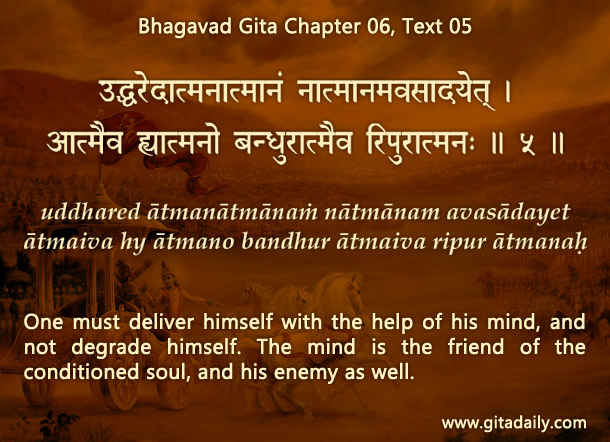Under the influence of the mind, we often do things that hurt us and hurt others too. For example, being impelled into a fit of anger by the mind, we speak hurtfully – and later regret the wounds we caused and the relationships we ruined.
When we get caught in the mind’s clutches, it makes us imagine that we are doing something special, while it makes us do the utterly ordinary. For example, when we verbally lash out at someone under the spell of anger, we may feel a temporary rush of power as we vent out our feelings. But that sense of power is illusory for it frequently worsens the situation, often taking it beyond our power to repair. Even when that doesn’t happen, because say the person doesn’t have the power to retaliate or resist, still all our actions, especially the worldly actions impelled by the mind, have karmic consequences – and those consequences will hurt us sooner or later.
If we wish to do something special, then we need to boldly stand up to the mind
In general, the mind urges us to give in to the anarthas. And that is nothing special – that’s what everyone is doing, thereby causing trouble to others and bringing trouble in their own lives too. Indeed, what the mind induces in us is a herd mentality, wherein we unthinkingly, like the sheep in a herd, follow the mind’s lead, which in turn unthinkingly follows the lead of the culture with its glamorization of cheap thrills, oblivious to their ramifications.
If we wish to do something special, then we need to boldly stand up to the mind by drawing strength from sincere devotion to Krishna, and thus live a life of integrity and sensitivity. Recommending such a no-nonsense approach to mind management, the Bhagavad-gita (06.05) urges us to not degrade ourselves with the mind but elevate ourselves.

Explanation of article:
https://www.youtube.com/watch?v=P-i9JXARmOw

HARE KRSNA Prabhuji,
I am reading your Gita Daily and it is very useful.
I have a basic questions. I would like to know the difference between mind and intelligence. During chanting many thoughts comes and series of background planning activities starts, do not know if this is fantasy or imagination or illusion, but whenever awareness comes back, i realize that thoughts are going on in back ground and chanting is not effective. Whenever, such situation arises, i get doubt what is real difference between mind and intelligence? is mind controlling the intelligence or other way? or intelligence under illusion? etc. How to separate these 2 (mind & intelligence) and how do we effectively apply these for chanting?
Please reply.
Haribol
Answered here:
http://www.thespiritualscientist.com/2014/09/what-is-the-actual-difference-between-mind-and-intelligence/
ys
ccdas
Hare Krishna !